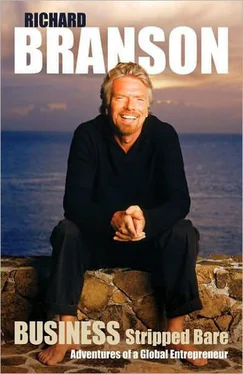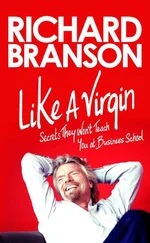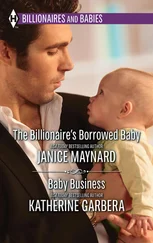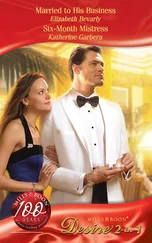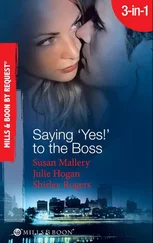Almost all of the biggest names in rock and pop music carved their reputations in that studio. The Manor taught me how to run a business and handle creative people. I also learned that not everyone gets what they truly deserve in life. I listened to some musicians with a modicum of talent who got a few lucky breaks; others with talent seeping out from every pore who simply didn’t make it. I’ve sat drinking with people who have abused their gifts — and others who have made absolutely the most of some pretty dubious talent.
It is well documented that Mike Oldfield’s debut album, Tubular Bells , was a breakthrough into the big time for the burgeoning Virgin empire. Mike was (and still is) a genius. But he was also an incredibly hard and fastidious worker — and that’s something that takes you a long way in life. I remember first hearing an early tape of his material on our houseboat and being captivated by its haunting beauty and complexity. It was mind-blowing that a fifteen-year-old played all of these instruments so beautifully. We tried to get some of the record companies interested but they all had cloth ears and the dinosaur A&R executives turned him down.
So one afternoon in the pub, I said to our team: ‘Let’s do it ourselves. Let’s set up our own record company and release Mike as one of our first LPs on our own Virgin Record label.’
Everyone thought I’d had one glass too many. We were still primarily a mail-order business, not a record company. But I persevered. I asked Mike for a list of the instruments he needed and went off to Charing Cross Road and rented them all: drums, synthesisers, guitars and tubular bells. We arranged for Mike to have time in the recording studio, between bookings, in the spring of 1973. He worked night and day, playing all the instruments himself, then sat at the mixing desk with Tom Newman to fine-tune the recording. I had never witnessed someone who listened and concentrated so hard or with such acute attention to acoustic detail.
Our decision to distribute the record ourselves was shrewd. But it was by no means certain at the time that the gamble would pay off. Virgin Records was a tiny business and it lacked the clout and the distribution of other major players.
Simultaneously, we were releasing Gong’s Radio Gnome Invisible and we were promoting an avant-garde German rock band called Faust. (In typical Virgin Records style, we were giving away the album, The Faust Tapes , for 48p — an album for the price of a single.) But Gong and Faust were to be mere musical footnotes compared with Tubular Bells . Chris Blackwell, who ran Island Records — the company nearest to our way of thinking — loved Mike’s music and offered to distribute it for us, and even offered to take it off our hands for a substantial profit.
It was tempting but we decided to do it all ourselves. It was a game-changing decision and it was incredibly bold. I’m always apt to take the greater risk: a bigger risk for a large chunk of the upside . That’s what I learned then, and I still apply a version of this in business today. It might have been sensible to let Island do all the grunt work: the advertising, marketing and delivery to the record shops. But I felt that we had placed our faith in Mike, and should do this ourselves.
In June 1973, John Peel played the record on his late-night Radio 1 show, Top Gear . This was the first time the BBC disc jockey had ever played a whole side of an LP.
The next morning the phone rang off the hook with people wanting to lay their hands on the album. It never stopped ringing.
John Peel was hugely influential — and so too were the music press. The power of the print medium has always played a major part in building the Virgin brand. But I began to understand and appreciate this fully only during the summer of 1973. While the Gong and Faust reviews were lukewarm, Mike Oldfield’s were sizzlingly hot.
The album remained in the charts for five years, selling two million copies in the UK alone. Worldwide this figure was nearer 10 million.
In November 1972, aged twenty-two, I was speaking to my girlfriend when I penned one of my first lists.
1. Learn to fly.
2. Look after me/you/boat.
3. Entertain everybody with me.
4. Invite nice people back.
5. Start getting the small house together at the Manor.
6. Start buying odds and sods for the Manor.
7. Work with me on projects/sort me out.
8. More shops to be found.
But despite these ambitions it was obvious we were still a small company thrashing around. Most of us were still in our early twenties. We needed professional help, and I began a search for a proper accountant in 1973. I penned the advert myself:
Virgin Records have, within three years, built up seventeen shops, two recording studios, a large export company, an import company, a publishing company, an agency, a management company, licences in every country in the world, a successful record company and a friendly staff of 150 people. Virgin Records don’t have a shit-hot accounts department.
Virgin Records grew to become the largest independent record label in the world. And, in 1992, after our abortive time on the stock market in 1987, we sold it to EMI for a billion dollars.
We sailed pretty close to the wind on several occasions in the early days. We just about delivered on our promises, but it was a struggle. Given my time again, though, I’m not sure I would make any changes to the major decisions we took. We were feeling our way into what the brand could deliver. We were waking up to the idea that Virgin’s interests lay less in our own enthusiasm for any one business, and more in giving our customers a reason to be enthusiastic about the various things that we did. This, I believe, is why the Virgin model is so devilishly hard for start-ups to copy. Unless you’re working in a magical industry to start with — and music in the 1970s was certainly magical — it’s hard to see how you can win such loyalty and fellow feeling from your customers as you develop and expand.
That’s not to say it can’t be done. But the Virgins of the future won’t look like anything we ever did. They’ll emerge from the gaming industry, or the social-networking sector, or some area quite unknown to me and my generation. They’ll look contemporary, they’ll look odd, they’ll thrill the kids, scare their parents, and they’ll take everyone by surprise.
Emma, a sixteen-year-old girl, can’t afford a mobile phone contract. She’s just left school and has started in a hairdressing salon. She isn’t earning a lot but she wants to keep up with her friends. She enjoys flicking through the celeb mags, watching Friends , likes Madonna, Janet Jackson and MC Hammer, and she chats regularly to Mark, her steady boyfriend, who’s slightly older. He’s just landed a labouring job with a building contractor, and he supports a top-flight football club, though he can’t afford a season ticket. He enjoys a few pints of lager with his mates. He likes rap and hip hop and wants a heavy sound system for a souped-up Toyota, once he passes his driving test. It’s the 1990s. The big phone companies aren’t too interested in Emma and Mark — but we are.
Our entry into the mobile phone business remains to this day one of our brand’s finest achievements. By offering prepay phones to young people, we were offering a product that was manifestly not a rip-off, to customers everyone else was ignoring. This proposition harnessed the brand values Virgin had acquired in the 1970s and launched them, through a new medium, at a new generation. This was the moment the Virgin brand went truly ‘mobile’, transferring, almost seamlessly, not simply from one sector to another, but — even more remarkably — from one age demographic to another.
Читать дальше
